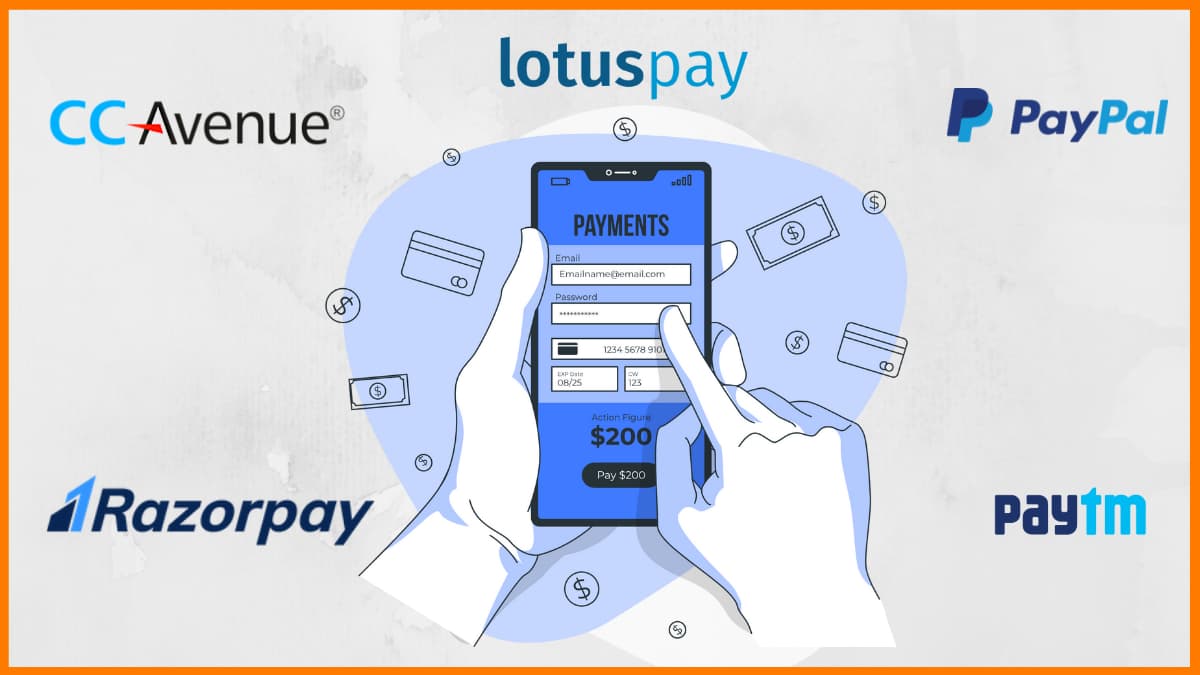Name: Buddy Kim
Date: 26/12/23
Introduction
A payment processor is a financial entity that facilitates secure and seamless transactions between a payer and a payee. It acts as an intermediary, ensuring the smooth transfer of funds while maintaining the integrity and security of the transaction.
Importance of Payment Processors in Collection Strategies
For businesses operating in India, where diverse payment methods and unique challenges exist, choosing the right payment processor is instrumental in crafting an effective collection strategy. The evolution of payment processors in India has been marked by technological advancements, regulatory changes, and a growing consumer base. This section delves into the journey and growth trajectory of payment processors.
Collection Strategies in India
Several payment processors have established themselves as key players in the Indian market. Examining these industry leaders helps businesses make informed decisions when selecting a payment processor. India presents unique challenges for businesses in terms of varied payment methods[1], diverse consumer preferences, and regulatory complexities. Crafting collection strategies that address these challenges is imperative.
Importance of an Effective Strategy
An innovative debt collection strategies[2] goes beyond the choice of payment processor. It encompasses understanding customer behavior, tailoring approaches, and leveraging technology to enhance overall efficiency. Technology plays a pivotal role in optimizing collection strategies. From data analytics to AI-driven solutions, businesses can harness technology to gain insights and improve the effectiveness of their collection processes.

Criteria for Selecting a Payment Processor
Security Features
Security is paramount in financial transactions. Businesses must prioritize payment processors[3] with robust security features to protect sensitive customer information and ensure trust. Seamless integration with existing systems is crucial for a hassle-free payment processing experience. Choosing a payment processor that aligns with the business’s infrastructure is key.
Cost-effectiveness
While security and integration are vital, Strategies to Speed up Collections[4] must also consider the cost-effectiveness of a payment processor. Striking a balance between features and affordability is essential. A user-friendly interface enhances the customer experience. Businesses should opt for payment processors that offer intuitive interfaces, making transactions smooth and hassle-free.
Popular Payment Processors in India
Razorpay

Razorpay has emerged as a leading payment processor software[5] in India, offering a range of services catering to businesses of all sizes. Its features include easy integration, multiple payment options, and advanced security. PayU is known for its comprehensive payment solutions, providing a secure platform for online transactions. With a global presence, PayU is a preferred choice for businesses operating in India.
Instamojo
Instamojo focuses on empowering small businesses by offering simple and efficient payment processing solutions. Its user-friendly approach makes it a popular choice among startups and entrepreneurs. CCAvenue boasts a robust payment gateway that caters to diverse industries. Its wide range of features, coupled with a reputation for reliability, positions it as a prominent player in the payment processing landscape.
Case Studies
Successful Implementation of Payment Processors in Collection Strategies
Examining real-life case studies showcases the tangible benefits of integrating payment processors into collection strategies. Businesses that have successfully implemented these solutions can serve as models for others. Learning from the experiences of other businesses provides valuable insights. This section explores lessons learned from both successful and challenging implementations of payment processors in collection strategies.
Benefits of Using Payment Processors in Collection

Increased Efficiency
Payment processors streamline the collection process, reducing manual effort and minimizing errors. This leads to increased efficiency and faster processing times. A seamless and secure payment process contributes to an overall positive customer experience. Businesses that prioritize user-friendly payment options often witness increased customer satisfaction and loyalty.
Challenges and Solutions
Addressing Security Concerns
While payment processors enhance security, concerns may still arise. This section explores common security concerns and provides solutions to mitigate risks. Integration challenges can hinder the seamless implementation of payment processors. Businesses can proactively address these challenges by adopting best practices and seeking expert guidance.
Future Trends in Payment Processing for Collection
Technological Advancements
The future of payment processing in India is marked by ongoing technological advancements. Exploring upcoming trends, such as blockchain and contactless payments, prepares businesses for the future landscape. New entrants into the payment processing arena bring innovation and competition. Keeping an eye on emerging players ensures businesses stay ahead in adopting cutting-edge solutions.
Conclusion
In conclusion, selecting the right payment processor is a strategic decision that significantly influences the success of collection strategies in India. Businesses must weigh security, integration, cost-effectiveness, and user-friendliness to make informed choices. ged to explore and adopt these solutions to stay competitive and enhance their collection strategies.
FAQs
What is the role of payment processors in collection strategies?
Payment processors play a pivotal role in streamlining and securing financial transactions, contributing to the overall effectiveness of collection strategies.
How do payment processors enhance security in transactions?
Payment processors incorporate advanced security features such as encryption and authentication protocols, ensuring secure and fraud-resistant transactions.
Can small businesses benefit from using payment processors?
Absolutely. Payment processors like Instamojo cater specifically to small businesses, providing affordable and efficient solutions for streamlined transactions.
What challenges do businesses commonly face when implementing payment processors?
Common challenges include integration issues, security concerns, and adapting to evolving technological requirements. Addressing these challenges requires careful planning and strategic implementation.
Are there any upcoming trends in payment processing for collection?
The future holds trends like blockchain integration, contactless payments, and further advancements in AI-driven solutions, shaping the next phase of payment processing in India.






